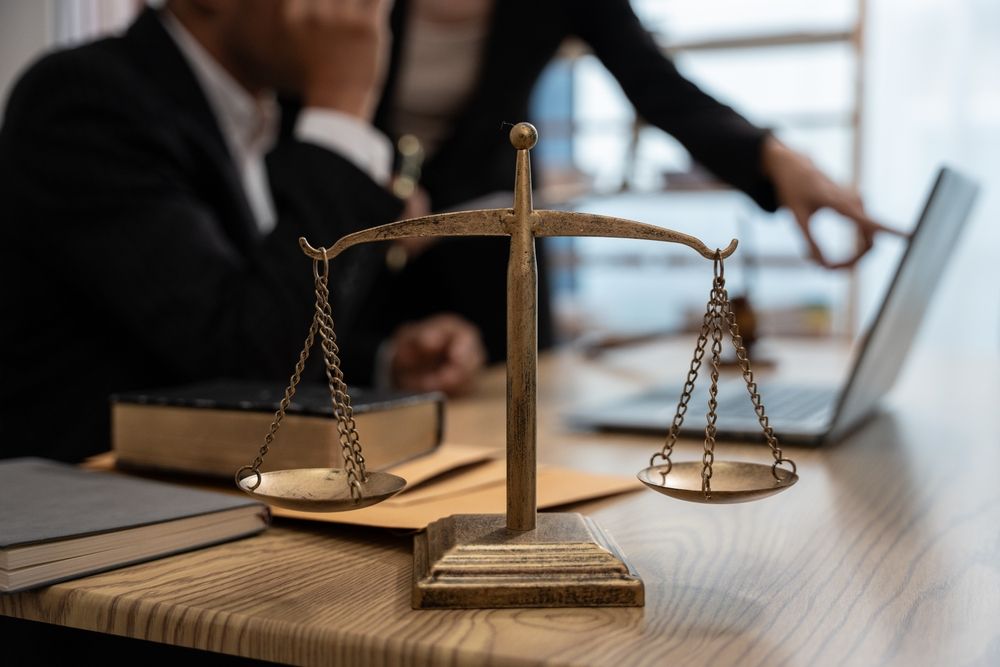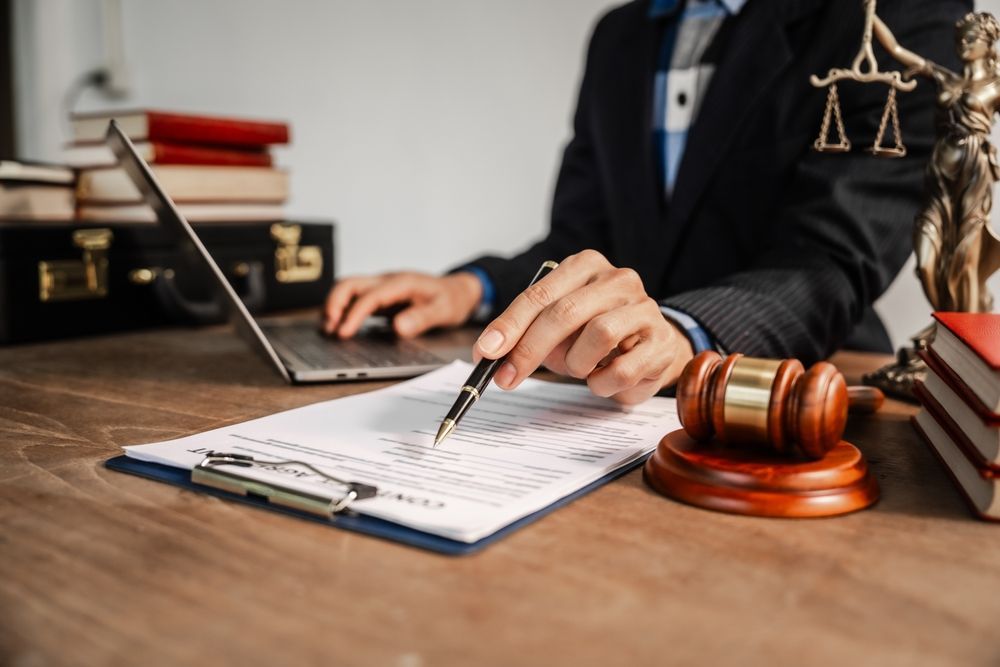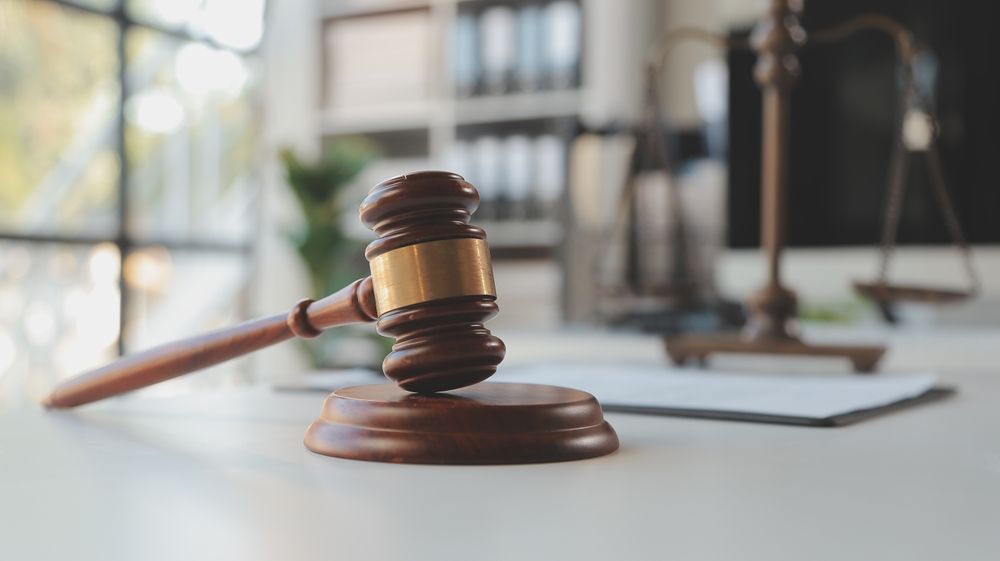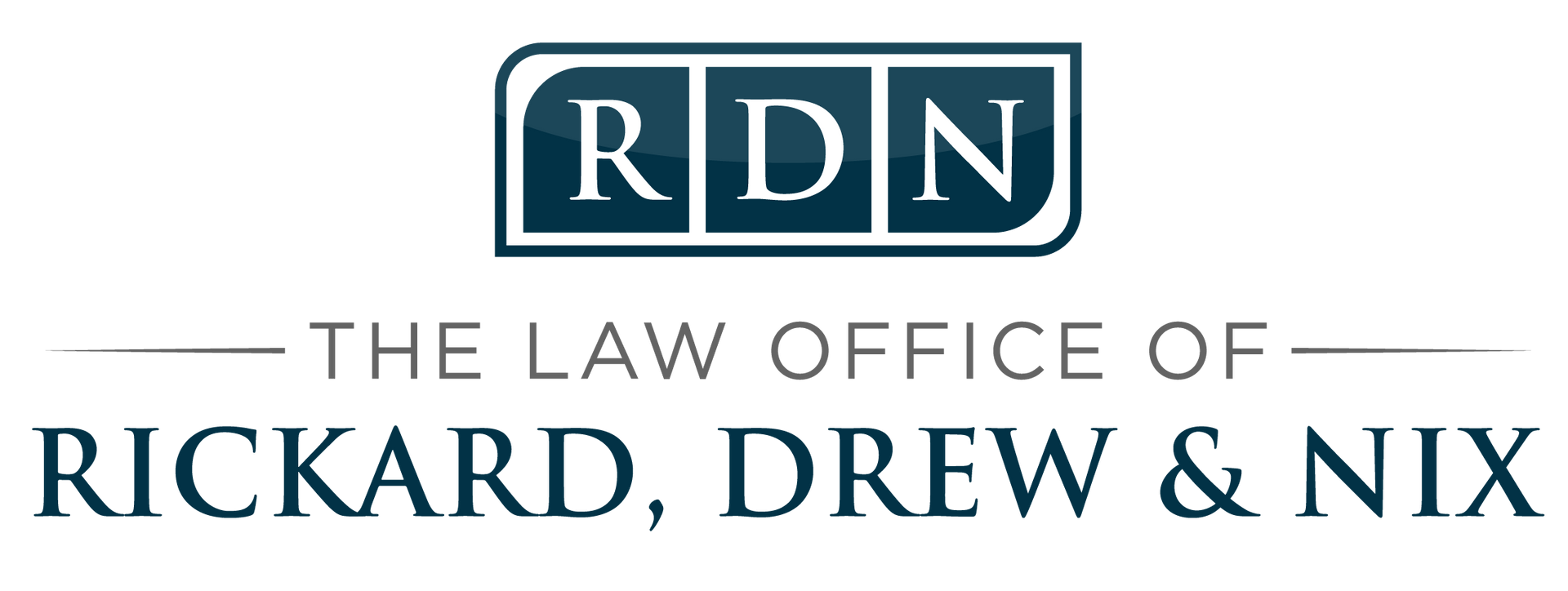How to Handle a Truck Accident Case in Atlanta Courts
Atlanta highways are often fraught with danger due to the sheer volume of trucks that use them. When big rigs cause accidents, victims are left with injuries and financial woes from property loss. Filing a case becomes essential to getting your life back on track. But most accident victims have no idea about Georgia traffic laws regarding truck accidents. Understanding how the legal process works is the first step to rightful compensation.
Truck accidents can lead to serious injuries and complicated legal issues. Many victims are unsure of how to navigate the legal landscape in Atlanta courts. This article will guide readers through essential steps, including understanding Georgia's truck accident laws, preserving evidence, and seeking medical attention. By following this advice, individuals can better manage their cases and pursue compensation effectively. Whether dealing with property damage or injuries, this content aims to alleviate the stress of the legal process and provide clarity on how to handle a truck accident case.
Understand Georgia's Truck Accident Laws and Regulations
Understanding Georgia's truck accident laws and regulations is essential for anyone involved in such incidents. Key traffic laws impacting truck accidents will be discussed, along with how to identify liability in these cases. Additionally, insights into the negotiation process, the role of dashcam footage, and the importance of a demand letter will be provided, offering practical guidance for navigating the complexities of truck accident cases in Atlanta courts.
Learn Key Traffic Laws Impacting Truck Accidents
In Georgia, traffic laws play a crucial role in determining liability in truck accident cases. For instance, failing to stop at a stop sign can lead to serious car accidents, especially when a large truck is involved. Understanding these laws helps victims and their lawyers in Atlanta build a strong case, as they can demonstrate how violations contributed to the accident and any resulting injuries or damages.
Additionally, the impact of a truck accident can extend beyond immediate injuries, affecting a victim's wage and overall quality of life. In cases of severe injury or wrongful death claims, it is essential to gather evidence that shows how the truck driver’s negligence violated traffic laws. This evidence can significantly influence the outcome of a case, ensuring that victims receive the compensation they deserve for their losses.
Identify Liability in Georgia Truck Accidents
Identifying liability in Georgia truck accidents involves understanding the duty of care that truck drivers and their employers owe to other road users. When a truck driver fails to adhere to safety regulations or acts negligently, they may be held responsible for any resulting injuries. Atlanta truck accident attorneys often analyze factors such as driver fatigue, vehicle maintenance records, and compliance with traffic laws to establish liability in an injury case.
In many instances, multiple parties may share liability in a truck accident, including the truck driver, the trucking company, or even manufacturers of faulty vehicle parts. Victims can seek compensation for pain and suffering, medical expenses, and lost wages by demonstrating how these parties breached their duty of care. Engaging experienced attorneys can significantly enhance the chances of a favorable outcome in these complex cases, ensuring that victims receive the justice they deserve.
Take Immediate Steps After a Truck Accident
After a truck accident, it is vital to take immediate steps to protect one’s rights and ensure proper handling of the case. First, notifying law enforcement and emergency services is essential for documenting the accident and addressing any injuries. Next, exchanging information with all parties involved helps establish a clear understanding of the incident, which is crucial for any Georgia personal injury claim. These actions lay the groundwork for understanding the duty of care and potential product liability issues that may arise in the case.
Notify Law Enforcement and Emergency Services
Notifying law enforcement and emergency services immediately after a truck accident is crucial for documenting the incident and ensuring safety. In Atlanta, police officers will arrive to assess the situation, gather information, and create an official report, which can be vital for any injury claim. This report may later be referenced by a claims adjuster or a judge when determining liability and compensation for injuries, such as neck injuries, sustained in the accident.
In addition to calling the police, seeking medical attention is essential, even for seemingly minor injuries. Emergency responders can provide immediate care and document injuries, which strengthens the case for compensation. This documentation is important for establishing the extent of injuries and can significantly impact the outcome of the case in Atlanta courts, especially when negotiating with insurance companies or pursuing claims against negligent parties.
Exchange Information With All Parties Involved
Exchanging information with all parties involved in a semi truck accident is a critical step in building a strong case. This includes obtaining names, contact details, insurance information, and vehicle registration numbers from the truck driver and any other drivers involved. Additionally, gathering contact information for witnesses can provide valuable testimony that supports the plaintiff's claims, especially in cases where medical malpractice or brain damage may be a concern due to the accident.
It is also advisable for the plaintiff to document the scene of the accident through photographs and notes. This evidence can be crucial in establishing the circumstances surrounding the incident and may help in negotiations with insurance companies. By ensuring that all relevant information is collected promptly, the plaintiff can strengthen their position in court and improve their chances of receiving fair compensation for injuries sustained in the truck accident.
Preserve Crucial Evidence From the Accident Scene
Preserving crucial evidence from the accident scene is vital in any truck accident case. This includes photographing the scene and vehicle damage, which can illustrate the circumstances of the incident. Additionally, collecting witness statements and contact details can provide essential support in establishing fault in Atlanta car accidents. These steps are fundamental in building a strong case for compensation.
Photograph the Scene and Vehicle Damage
Photographing the scene and vehicle damage after a truck accident is essential for building a strong personal injury case. These images serve as critical evidence that can illustrate the circumstances of the accident, including the extent of damage to vehicles and any visible injuries, such as burns or spinal cord injuries. Capturing these details can significantly influence the verdict in court, as they provide a visual representation of the incident that law enforcement may reference in their reports.
In addition to vehicle damage, photographs of the accident scene can help establish the context, such as road conditions and traffic signals. This evidence can be vital when negotiating with insurance companies or presenting a case in Atlanta courts. By ensuring that all relevant details are documented, victims can strengthen their claims and improve their chances of receiving fair compensation for their injuries and losses.
Collect Witness Statements and Contact Details
Collecting witness statements and contact details is a critical step in building a strong case after a truck accident. Witnesses can provide valuable insights into how the accident happened, including factors like drowsy driving that may have contributed to the incident. Their accounts can be instrumental in establishing the facts of the case, which can significantly influence a jury's perception and the outcome of a personal injury law claim.
In addition to gathering statements, obtaining contact information from witnesses ensures that they can be reached later for further testimony if needed. This evidence can help demonstrate the pain and suffering experienced by the victim, as well as clarify the circumstances surrounding the accident. By securing these details promptly, victims can strengthen their position in negotiations and court proceedings, ultimately improving their chances of receiving fair compensation for their injuries.
Seek Prompt Medical Attention for Injuries
Seeking prompt medical attention after a truck accident is crucial for establishing a strong case in Atlanta courts. A comprehensive medical evaluation helps identify injuries, including potential spinal cord damage, and documents the impact of the truck driver’s negligence. Keeping detailed records of all medical treatments and expenses is essential, especially if driving under the influence was a factor, as this information can support claims and expert witness testimonies.
Get a Comprehensive Medical Evaluation
Getting a comprehensive medical evaluation after a truck accident is essential for establishing the extent of injuries and documenting the impact on a victim's life. This evaluation not only identifies immediate injuries but also uncovers potential long-term effects that may affect a person's income and overall quality of life. Insurance companies often scrutinize medical records, so having thorough documentation can strengthen a complaint against negligent parties, including the truck driver and their employer, under the principle of vicarious liability.
A detailed medical evaluation provides critical evidence that can be used in negotiations with insurance companies and in court. It helps to clarify the relationship between the accident and the injuries sustained, which is vital for securing fair compensation. By ensuring that all medical findings are documented, victims can effectively demonstrate the severity of their situation, making it more challenging for insurance companies to dispute claims related to vehicle accidents.
Keep Records of All Medical Treatments and Expenses
Keeping detailed records of all medical treatments and expenses is essential for anyone involved in a truck accident case in Atlanta. This documentation serves as critical evidence, especially in cases involving catastrophic injury or long-term disability. By maintaining accurate records, victims can clearly demonstrate the complexity of their medical needs and the financial burden resulting from the accident, which is vital for securing fair compensation.
Victims should include all medical bills, treatment plans, and any related expenses in their records. This information not only supports claims against negligent parties but also highlights the need for ongoing medical attention. In cases where assault or other factors may complicate the situation, having comprehensive documentation can significantly strengthen a victim's position in negotiations and court proceedings.
Consult an Experienced Atlanta Truck Accident Attorney
Researching attorneys who specialize in truck accidents is crucial for navigating the complexities of an Atlanta accident case. Scheduling a consultation allows victims to discuss their legal options, including potential damages and the importance of legal advice. This step ensures that individuals are well-prepared for depositions and understand any premises liability issues that may arise.
Research Attorneys Specializing in Truck Accidents
Researching attorneys who specialize in truck accidents is vital for anyone involved in such incidents. These professionals understand the specific traffic laws and regulations that govern truck operations in Georgia, which can significantly impact the outcome of a case. They can also provide insights into the behavior of the parties involved and how it relates to the statute of limitations for filing a claim, ensuring that victims do not miss critical deadlines.
When selecting an attorney, it is important to consider their experience with similar cases and their ability to gather witness statements that support the victim's claims. A knowledgeable attorney can help navigate the complexities of the legal process, including understanding potential fees and costs associated with pursuing a case. By choosing the right legal representation, victims can enhance their chances of receiving fair compensation for their injuries and losses.
Schedule a Consultation to Discuss Legal Options
Scheduling a consultation with an experienced Atlanta truck accident attorney is a crucial step in navigating the complexities of a truck accident case. During this meeting, victims can discuss their legal options, including the possibility of mediation or filing a lawsuit. Attorneys familiar with regulations from the National Highway Traffic Safety Administration and the Federal Motor Carrier Safety Administration can provide valuable insights into how these laws may impact the case, particularly in relation to comparative negligence.
In the consultation, victims should be prepared to share details about the accident and any injuries sustained. This information allows the attorney to assess the case's strengths and weaknesses, guiding the victim on the best course of action. By understanding the legal landscape and potential outcomes, individuals can make informed decisions about their next steps, ensuring they are well-equipped to pursue fair compensation for their losses.
File a Claim and Pursue Compensation
Filing a claim and pursuing compensation after a truck accident in Atlanta requires understanding the statute of limitations in Georgia, which dictates the time frame for initiating a car accident lawsuit. Victims must also prepare for negotiations or court proceedings, focusing on factors such as fatigue and the percentage of liability. These steps are crucial for effectively navigating the legal process with the assistance of a knowledgeable lawyer.
Understand the Statute of Limitations in Georgia
Understanding the statute of limitations in Georgia is crucial for anyone pursuing a truck accident claim. In most cases, victims have two years from the date of the accident to file a lawsuit for their injuries. Failing to initiate a claim within this timeframe can result in losing the right to seek compensation for suffering, medical expenses, and other damages related to the car accident.
Victims should be aware that the statute of limitations can vary based on specific circumstances, such as the involvement of government entities or wrongful death claims. Engaging an experienced attorney can provide valuable insights into these nuances, ensuring that victims do not miss critical deadlines that could affect their settlement options. By understanding these legal timeframes, individuals can take proactive steps to protect their rights and pursue the compensation they deserve for their injuries.
Prepare for Negotiations or Court Proceedings
Preparing for negotiations or court proceedings in a truck accident case requires a thorough understanding of the relevant laws and the specifics of the incident. For example, if the accident involved a hit and run, it is crucial to gather all available evidence, including witness statements and dashcam footage, to support the claim. Victims should also be aware of the potential for punitive damages if the truck driver acted recklessly, which can significantly impact the compensation sought from the insurance policy of the commercial vehicle involved.
Additionally, victims should be prepared to discuss the extent of their injuries, such as a head injury, and how these injuries have affected their daily lives. This preparation includes having medical records and expert testimonies ready to present in court or during negotiations. By clearly articulating the impact of the accident and demonstrating the negligence of the other party, victims can strengthen their case and improve their chances of receiving fair compensation for their losses.

Attorney Jessica Nix, Managing Partner
Jessica Nix is Managing Partner and a Personal Injury Attorney at the Law Office of Rickard, Drew & Nix in Atlanta, with more than 10 years of experience representing injury victims in courts across Metro Atlanta. She graduated cum laude from the University of Georgia School of Law, where she served as an editor of the Journal of Intellectual Property Law. Jessica is admitted to the State Bar of Georgia, is a member of the Georgia Trial Lawyers Association, and was named a Georgia Super Lawyers Rising Star for Personal Injury from 2017 to 2019. To speak with the Law Office of Rickard, Drew & Nix, schedule a free consultation today.



